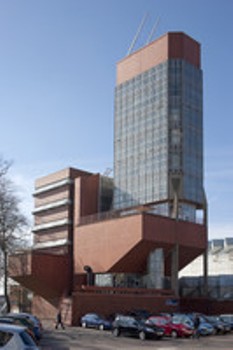A new study at the University of Leicester is utilizing a new technology to research the effects of volcanic ash on airplanes that fly across the volcanic eruption zones.
 Materials Technology Integration Centre - Credit University of Leicester
Materials Technology Integration Centre - Credit University of Leicester
The research jointly conducted by Dr Mike Branney, a specialist in volatile volcanoes in the Department of Geology and Dr Hongbiao Dong, Reader in Engineering Materials in the Department of Engineering who is also an expert in solidification will find the consequences of volcanic ash particles that get heated inside jet engines.
The blades of the aircraft engines function at heat levels that are over and above their melting point and utilize a regular flow of cooling air that blows through small holes in the blades to dissipate the high level heat. The air, which blows on the surface of the blades builds a protective film to prevent them from reaching the level of heat comparable to that of the temperature reached by the engine during the combustion process. Volcanic ash that reaches inside the engines will attain a top heat level of 2,000˚C and start melting, and the melted ash if absorbed into the small holes in engine blades then solidifies into a layer of glass and covers the ventilation holes making the blades to melt thus leading to engine failure.
The researchers are presently studying two distinct types of volcanic ash and compute their temperature utilizing a Differential Scanning Calorimeter, and then they will study its morphology by deploying the X-ray Computed Tomography. The new initiative mixes both engineering and volcanology. The instruments deployed in the study are a segment of an innovative hi-tech engineering centre MaTIC (Materials Technology Integration Centre), valued at £1million, which works along with the industry to drive novelty in materials technology. The center has a variety of advanced equipment for interpreting performance of materials.
According to Professor Sarah Hainsworth, who leads MaTIC, the hi-tech engineering center was opened to have advanced methods of study and equipment for studying a variety of materials and material related problems on materials utilized in parts such as turbine blades or on materials such as volcanic ash, fossils and rocks that occur naturally.